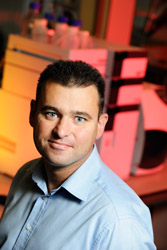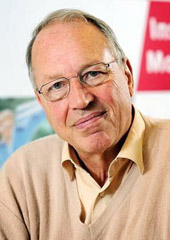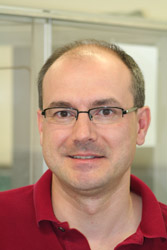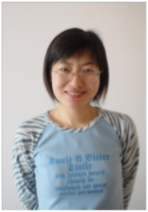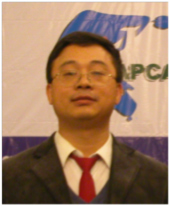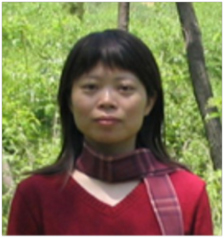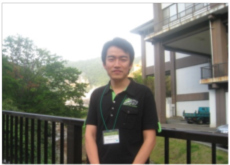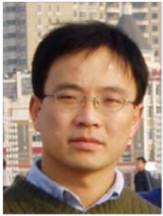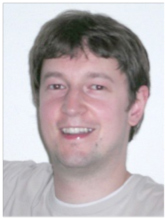Research Leaders
Prof. Dr. Can Li
Can Li received his PhD degree in 1988 from Dalian Institute of Chemical Physics, was promoted to full professor in 1993, and was elected to a member of the Chinese Academy of Sciences in 2003. He was appointed to the director of State Key Laboratory of Catalysis in 1998, elected to the President of the International Association of Catalysis Societies in 2008. He is on the editorial boards of more than 15 academic journals and has been invited to ChemComm editorial board as associate editor since 2010. He has published more than 400 peer-reviewed papers with over 4000 citations, authorized 40 patents and delivered more than 60 invited and plenary lectures at national and international conferences. Under his supervision, more than 60 graduate students have obtained their PhD degrees.
Among the prestigious awards he received are the International Catalysis Award, Hong Kong “Qiu-Shi” Outstanding Young Scientist Award and National Award for Outstanding Young Scientists in China, HLHL Award etc. His research interests are Physical Chemistry, Catalysis, Environmental Catalysis, Chiral Catalysis, Photocatalysis, Solar Energy Utilization (photocatalysis and photovoltaic), In-situ Characterization, Resonance and Time-resolved Spectroscopy.
Prof. Dr. Ir. Emiel J.M. Hensen
Emiel Hensen, born in Geleen (The Netherlands) in 1971, received his master degree in chemical engineering and chemistry from Eindhoven University of Technology (The Netherlands) in 1994. He obtained his PhD from the same university in the field of molecular heterogeneous catalysis under the supervision of Prof. Rutger van Santen and Prof. Rob van Veen. He then took up an assistant professor position with Prof. Berend Smit at University of Amsterdam. In 2001 he returned to Eindhoven University of Technology as an assistant professor. He was promoted to associate professor in 2008. From 2006-2008 he was a visiting research scientist at the Shell Research and Technology Center Amsterdam (The Netherlands). Hensen is since July 2009 full professor inorganic materials chemistry at Eindhoven University of Technology. He is a visiting professor at Leuven University since 2001.
Hensen is the (co)author of some 100 publications in peer-reviewed scientific journals, several articles in national journals and 5 book contributions. He obtained the prestigious VENI-STW NWO and VIDI-STW NWO grants from the Netherlands Organisation for Scientific Research for his research work in 2003 and 2007 and a Casimir grant in 2005. Hensen is board member of the Netherlands Research School for Catalysis (NIOK) and affiliated to the National Research School Combination on Catalysis (NRSC-C).
The Hensen group focuses on the generation of scientific and technological knowledge in the field of catalyst systems relevant to the development of clean and sustainable processes for the production of fuels and chemicals. Modern concepts of catalysis are used to design catalysts to use current and future feedstocks in an as sustainable manner as possible with minimum environmental burden and energy consumption. Focus is on the synthesis of complex catalyst systems containing well-designed catalytically active ensembles and structured at various length scales to optimize reaction and diffusion. Applications are directed towards the improvement of current industrial processes, transition technologies involving natural gas and the implementation of novel processes using renewable feedstocks such as biomass and carbon dioxide including the application of solar light.
Prof. Dr. Rutger A. van Santen
Rutger Anthony van Santen was born in 1945 in Langedijk, The Netherlands. After finishing the gymnasium at Middelburg, he studied chemistry at the University of Leiden. For 1966 he received a bachelors degree in biochemistry and in 1967 his masters degree in theoretical organic chemistry (cum laude). He received his Ph.D. in 1971 on a thesis titled "On the theory of resonant scattering" with promoter Prof. Dr. L.J. Oosterhoff (cum laude). From 1971-1972 he continued research as a postdoc at SRI, Menlo, California in the Molecular Physics department headed by dr. F.T. Smith. In 1972 he joined Shell Research at Amsterdam. In the period 1972-1988 he had several different functions at Shell Research. His main interest was catalysis and his last function was head of the section Physical Chemistry and Catalysis. In 1976 he was a visiting Professor in Theoretical Chemistry at the Free University Amsterdam. From 1982-1984 he was assigned to Shell Development Co. in Houston, Texas.In 1986 he became Professor Extraordinarius in Surface Chemistry at Eindhoven, University of Technology. In 1988 the appointment to full Professor of Catalysis followed. In the period 1992-2000 he was scientific director of the Netherlands Institute of Research in Catalysis. He was the first and founding director of this institute. In 1981 he received the golden medal for excellence in research of the Royal Dutch Chemical Society. In 1991 he was awarded the Chiapetta Lectureship by the North American Catalysis Society. The Royal Society of Chemistry, Great Britain, invited him as Bourke lecturer in 1996. In 1997 he received the Spinoza Award from the Dutch Foundation for Pure and Applied Research. In 1999 he was the Gwathmey Distinguished Lecturer of the University of Virginia. In 2000 he was awarded the Karl-Ziegler-Lectureship at the Max-Planck-Institut für Kohlenforschung in Mülheim, Germany. From 2001 until 2005 he was Rector-Magnificus of the Eindhoven University of Technology.
In 2001 he received the Alwin Mittasch Medal Dechema, Germany and he became a member of the Royal Dutch Academy of Sciences and Arts. In 2004 he was awarded the Miller Visiting Professorship, Berkeley University, California and received the Academy Professor Award of the Royal Dutch Academy of Sciences and Arts. In 2005 he became director of the Schuit Institute of Catalysis and scientific director of the National Research School Combination Catalysis Controlled by Chemical Design (NRSC-C).
Rutger has published over 600 papers, 12 books and 22 patents. His present research interests are molecular aspects of heterogeneous catalysis. The two main themes of his research are: computational studies of surface-chemical reactivity and mechanism in heterogeneous catalysis.
Prof. Dr. Ir. Bert M. Weckhuysen
Bert Weckhuysen is full professor inorganic chemistry and catalysis at Utrecht University (The Netherlands) and since 2003 scientific director of the Dutch Research School for Catalysis (NIOK). His scientific interests can be divided in three topics: (a) spectroscopy of heterogeneous catalysts during catalyst preparation and real operation in order to develop structure-activity relationships and expert systems for catalytic processes; (b) synthesis of porous oxides with catalytic potential. The focus is on the fundamental understanding of the principles governing the assembly of process of such materials and the development of spectroscopic tools to evaluate the synthesis parameters under true synthesis conditions; and (c) the molecular design of transition metal ion complexes in inorganic hosts for catalyst and sensor applications. Enzymes, the most effective catalysts in nature, are the inspiration source for this research.
Key Researchers

Dalian Institute of Chemical Physics
Prof. Qihua Yang
She received her PhD degree from Northeast Normal University in 1997, then as a post-doctor at State Key Laboratory of Catalysis, Dalian Institute of Chemical Physics during 1997-1999 for the synthesis and design of highly isolated transition metal containing materials for selective oxidation. From 1999 to 2001, she worked in laboratory COMS-CNRS/CPE, France in the fields of surface organometallic chemistry. From 2001 to 2003, she worked in Toyota central R&D Labs., INC, Nagakute, Japan in the fields of periodic mesoporous organosilicas. In 2003, she was promoted to full Professor position at the Dalian Institute of Chemical Physics. Her research interests are in the fields of functionalized mesoporous materials, which includes hybrid mesoporous materials containing chiral ligands; hybrid mesoporous materials for catalysis; hybrid mesoporous materials containing organic functionalities for removing heavy metal ions from wastewater; transition-metal substituted mesoporous materials.
Prof. Zhaochi Feng
Zhaochi Feng was born in 1965. He got his Ph.D degree from Dalian University of Technology in 1997. He was the Post-Doctoral Fellow in Dalian Institute of Chemical Physics (1997-1999). Then he was promoted Associate Professor in Dalian Institute of Chemical Physics. In 2001, he worked as Visiting Scientist in Schuit Institute of Catalysis, Eindhoven University of Technology, the Netherlands. His research interests include laser spectroscopy, such as Raman and UV Raman spectroscopies, laser induced fluorescence spectroscopy, and theoretical calculation.
Dr. Jingying Shi
She received her PhD degree from Zhejiang University in 2006. Then she worked as a postdoctoral researcher in Professor Can Li’s group in Dalian Institute of Chemical Physics during 2006-2008 for research on photovoltaic cell and photocatalysis. At the end of 2008, she began to worked as a staff. In 2009, she was promoted to an associate professor. Her research interests are in the field of renewable energy, which include the synthesis and characterization of photocatalysts; photo(electro)catalytic water splitting for hydrogen production and photo(electro)catalytic reduction of CO2 to carbonaceous fuels.
Dr. Fengtao Fan
Fengtao Fan received his Doctor degree in Jan. 2010 at State Key Laboratory of Catalysis in Dalian Institute of Chemical Physics, Chinese Academy of Sciences. From May 2010, he joined in Prof. Can Li’s group to carry out UV Raman spectroscopic study on the synthesis mechanism of catalytic material. His research interests are in the fields of characterization of catalytic material, which includes the zeolite synthesis mechanism; identification of isolated active sites in zeolitic materials; the synthesis mechanism of photocatalytic materials.
Dr. Min Yang
He received his Bachelor degree from Dalian University of Technology (1994), and received his Master degree in chemistry engineering from Dalian University of Technology (1997), where he researched on preparation and characterization of nano-Al2O3. He began his research career in Dalian Institute of Chemical Physics since 1997, and his major research fields are industrial and environmental catalysis. He received his Ph.D. degree in physical chemistry from Dalian Institute of Chemical Physics (2007) under the supervision of Prof. Can Li. His Ph.D. dissertation is on the reactions and catalysts for the catalytic wet air oxidation of organic pollutants. His research interests focus on industrial & environmental catalysis and material chemistry, which includes design, preparation, and characterization of hydrotreating catalysts; ultra-deep desulfurization with adsorption; synthesis of nanostructured materials (nano-sulfides); application of novel catatlysts for synthesis of fine chemicals.
Dr. Jun Li
He graduated from Central China Normal University (Wuhan, China), obtaining a B.S. in applied chemistry in 2000. He then completed his M.S. study in inorganic chemistry during the period of 2000-2003 in the same university. After obtaining the M.S., He pursued his PhD under the supervision of Prof. Can Li at the Dalian Institute of Chemical Physics (DICP), focusing on the heterogeneous asymmetric hydrogenation. After receiving his PhD in 2008, he joined in the group of Prof. Can Li as a research assistant. His scientific interest includes the following: 1) Development of catalytic methodologies for more greener and efficient reduction of unsaturated compounds; 2) Synthesis of novel amphiphilic polymers and their self-assembly as nanoreactors; 3) Organic synthesis driven by light.
Key Researchers

Utrecht University
Dr. Andrew Beale
Andrew Beale was born in Beckenham in the UK. He studied Chemistry at the University of Sussex in Brighton where he graduated in 1996 with a BSc. (Hons) Class 2.i. He studied for and obtained a PhD degree from University College London and the Davy-Faraday Research Laboratory of The Royal Institution of Great Britain working with Dr. G. Sankar and Prof. C. R. A. Catlow on ‘Novel Low Temperature Methods for mixed complex oxide catalysts and their characterization using in situ SR techniques’. He obtained his degree on 21st March 2003. From 2002-2004 he was a Post Doctoral researcher at the Davy-Faraday Research Laboratory of The Royal Institution of Great Britain working with Dr. G. Sankar and Prof. C. R. A. Catlow on an EPSRC grant for New Materials research at the Davy-Faraday Research Laboratory. From 2004 onwards he is Junior Researcher (Post-Doc) at the department of Inorganic Chemistry and Catalysis (Prof. B. M. Weckhuysen), University of Utrecht, The Netherlands developing an in situ combined EDXAFS, UV-Vis and Raman spectroscopic setup to study catalytic reactions. Recently, he was awarded the NWO-VENI grant to study synthetic aspects of porous oxides by advanced spectroscopic tools.

